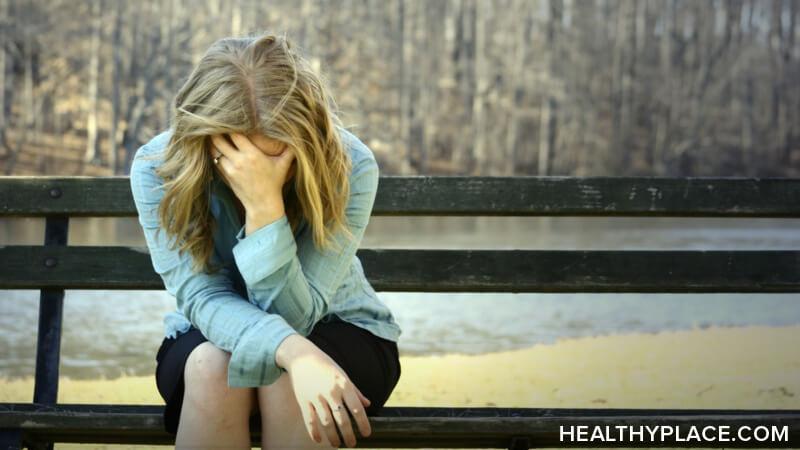Breaking the Cycle of Shame and Alcoholism

Shame can trap people in a cycle of alcoholism and addiction. Often, this becomes a skewed internal dialogue where the sense of shame exceeds the inciting event. An example would be someone isolating themselves from their family or friends after a potentially embarrassing episode whilst drinking. Rather than suppressing shame or guilt, I believe that exposure by self-evaluation and reflection is the best way to avoid the cycle that links shame and alcoholism.
Shame and the Invisible Line Between Heavy Drinking and Alcoholism
How can we determine the difference between a heavy drinker and an alcoholic? I remember feeling what I would describe as an invisible cliff's edge. Without realizing it, I was moving closer to it with every day of excessive drinking. With that, I was carrying an overload of shame and guilt into the next day, where I would inevitably drink at similar or higher levels of alcohol.
It took a while to get to that stage, so here's a brief history of problematic drinking. I was a binge drinker from 16, which progressed into heavy drinking with consequences from 18 onwards. Approximately 10 years later, I was firmly at that alcoholism tipping point. And every blackout and embarrassing event tipped the scales further, all under a dark cloud of shame.
Everyone feels shame -- it's a helpful tool if you utilize it for honest reflection. But it's counterproductive for someone to start cutting contact and isolating to avoid humiliation. For me, shame became a malignant force that pulled me back into alcoholism when I was ready to wave the white flag.
Self-Evaluation to Combat Overloading Shame
There is a proven link between the effects of shame and addiction1. It's difficult to avoid this powerful emotion or regulate how it registers. However, we can dismantle falsehoods to lessen the intensity of shameful feelings.
If I feel a pang of unwarranted shame, I now have the tools to reflect on it transparently.
Here's a shame checklist I use:
- Do I deserve to feel this level of shame?
- Is this feeling attached to a specific incident? (Past or present)
- Do I need to make any amends?
- How can I improve my behaviour to help avoid adverse outcomes?
Once I run through these questions, I write the answers in a journal to work out whether I'm overemphasizing the severity of these emotions.
Let's use an example that may resonate. Many years ago, I attended a New Year's Eve party and was so blind drunk that a friend drove me home. For several reasons, the feeling of shame was too heavy to handle the very next morning, so I drank straight away, even with a severe hangover. While I know I was erratic and my behaviour was offensive, the levels of shame are off the chart. But to make matters worse, I had a new bottle in my hand the following day.
In this instance, I was in the wrong and should've made amends and corrected my behaviour. Unfortunately, I chose to drink on my shame and stay away from my friends for nearly a month. At that time, self-evaluation was an abstract concept, and I didn't have the tools to combat overloading shame.
By fearlessly evaluating our past mistakes, we can prevent this emotional overload. From there, we can decide what corrective actions are available when there is some truth. If there are lessons to learn and behavioural improvements to apply, there are practical ways to achieve them.
You Can Break the Cycle of Shame and Alcoholism
Shame is a trap -- the solution is fearless self-evaluation and reflection. At first, self-analysis might feel like reopening old wounds or a tedious chore. But I now spend at least 30 minutes every evening reflecting on my day, awful ones.
The next time you get that horrible squirmy feeling, ask yourself -- Do you deserve this?
Even in scenarios where you can answer a full or partial yes, you're likely piling shame where it doesn't belong. We're all human and make mistakes – be kind and forgive yourself.
Don't let shame trap you in addiction -- use the checklist from this blog, and please adapt it to suit your situation.
Sources
- Luoma, J. B., Guinther, P. M., DesJardins, N. M. L., & Vilardaga, R. (2018b). Is shame a proximal trigger for drinking? A daily process study with a community sample. Experimental and Clinical Psychopharmacology, 26(3), 290–301. https://doi.org/10.1037/pha0000189
APA Reference
Armstrong, M.
(2023, August 2). Breaking the Cycle of Shame and Alcoholism, HealthyPlace. Retrieved
on 2026, January 8 from https://www.healthyplace.com/blogs/debunkingaddiction/2023/8/breaking-the-cycle-of-shame-and-alcoholism
